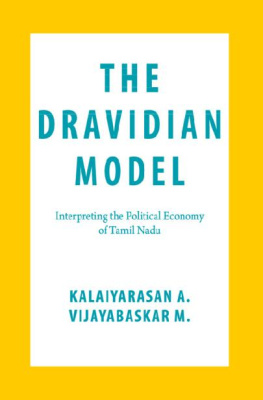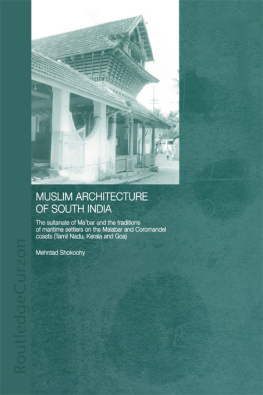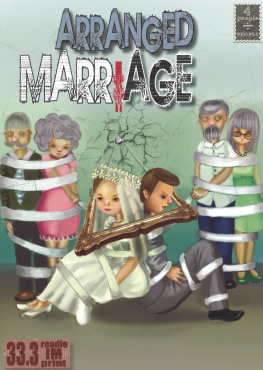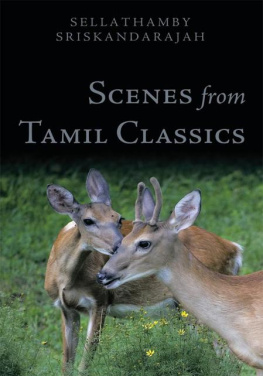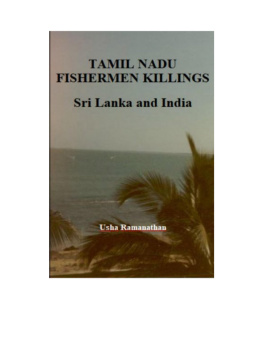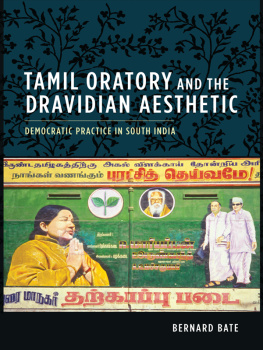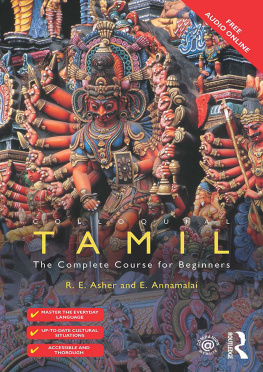THE RIGHT SPOUSE
PREFERENTIAL MARRIAGES IN TAMILNADU
ISABELLE CLARK-DECS
STANFORD UNIVERSITY PRESS
Stanford, California
Stanford University Press
Stanford, California
2014 by the Board of Trustees of the Leland Stanford Junior University. All rights reserved.
No part of this book may be reproduced or transmitted in any form or by any means, electronic or mechanical, including photocopying and recording, or in any information storage or retrieval system without the prior written permission of Stanford University Press.
Printed in the United States of America on acid-free, archival-quality paper
Library of Congress Cataloging-in-Publication Data
Clark-Decs, Isabelle, 1956author.
The right spouse : preferential marriages in Tamil Nadu / Isabelle Clark-Decs.
pages cm
Includes bibliographical references and index.
ISBN 978-0-8047-8806-9 (cloth : alk. paper)ISBN 978-0-8047-9049-9 (pbk. : alk. paper)1. Tamil (Indic people)Marriage customs and rites. 2. Tamil (Indic people)Kinship.3. MarriageIndiaTamil Nadu. 4. KinshipIndiaTamil Nadu. 5. Endogamy and exogamyIndiaTamil Nadu. 6. Tamil Nadu (India)Social life and customs. I. Title.
DS432.T3C63 2014
954'.82dc23
2013040995
ISBN 978-0-8047-9050-5 (electronic)
Typeset by Thompson Type in 10/14 Times New Roman
To my late husband Jim Clark, my role model and closest kin
CONTENTS
ACKNOWLEDGMENTS
It is impossible to thank individually the many people who have contributed directly and indirectly, in ways large and small, to this project. I am grateful to them all but want to mention some in particular.
Fieldwork in Tamil Nadu and the Union Territory of Pondicherry during 2007 and 2008 was generously supported by a grant from the Fulbright Foundation. A small faculty research grant and travel funds from Princeton University allowed for two follow-up visits in 2010 and 2011. Much of this book was written during my tenure in an Old Dominion Professorship from the Council of the Humanities of Princeton University in 20112012. I presented earlier versions of various chapters of this book in the Anthropology Department and the Society of Fellows of Princeton University (2008, 2011, 2012), at the London School of Economics (2011), the Association for Asian Studies in Honolulu (2011), the annual Tamil Conference in Berkeley (2010, 2011, 2012), and the AAA meetings in San Francisco in 2012. I thank Larry Rosen, Rena Lederman, Jim Boon, Chris Fuller, Laura Bear, Alpa Shah, Mukulita Banerjee, Indira Arumugam, Craig Jeffrey, George Hart, Kausalya Hart, Ann Gold, and many others for their invitations, encouragement, and critical feedback. Condensed versions of appeared in A Companion to the Anthropology of India, which I edited for Wiley and Blackwell (2011).
It is hard to imagine how this book could have come into being without the warm hospitality and collegiality of Susan Stewart, Carol Rigolot, Mary Harper, and the fabulous Cotsen fellows of Princeton University. Gabriela Drinovan helped me with the literature research, and Leo Coleman edited the manuscript. Frederick Smiths curiosity and deep knowledge of India inspired me. I take this opportunity to offer him my profound thanks for enriching my work and my life.
In an act of collegiality for which I am most grateful, Chris Fuller read an earlier draft of the present text, and his sound advice and detailed comments on all the chapters guided the revising process. I heartily thank Dennis Mc-Gilvray and the other reviewer who read the manuscript for Stanford University Press. Denniss careful reading and critical suggestions were invaluable, and I hope he sees his imprint on this book. Michelle Lipinskis support and enthusiasm picked me up more than once, and I feel privileged to be one of her authors. I am also grateful to Margaret Pinette for seeing the book through the production process.
I accrued many personal debts while in the field. I cannot thank enough the people who appear in this book under the names of Ravi, Mayandi, Neelam, Thiagu, Attai, Abi, Mohan, and Sunil. They shared their stories to me; more important, they touched me deeply. Thank you also to Jothi, Anand, Kasthuri, Srinidi, and Karthik for your loyalty and assistance. The Fulbright staff in Delhi provided invaluable assistance with the logistics of my stay. M. Kannan arranged my affiliation with the French Institute of Pondicherry, and I am grateful for his hospitality and all the lively conversations we had in his office. Ulrike Niklas was my guardian angel, taking me into her home and offering help with many of the details of organizing and carrying out field research.
If there is any sensitivity or empathy in this book, it comes from my late husband, Jim Clark, who passed away a month after I finished it. While the conditions under which it was written were marked by the terror and sadness of his progressing cancer, it is Jims love of life and books that ultimately shaped its form and ideas. For his generosity of spirit, his great laugh, his belief in me, and so much more, I thank him from the bottom of my heart.
INTRODUCTION
Tamil Preferential Marriages
Tamil people are always happy to know that the groom and bride are related.
Srinidi, September 2008
Nowadays people marry money to money, BA to BA.
Kartik, January 2009
For the better part of my fieldwork I lived in a suburb of Madurai, a temple town in the South Indian state of Tamil Nadu, in a cement house with a gated yard and a veranda on the second floor. The veranda looked over a flat terrain of brush and trash where a neighbor had patched together a cow pen with tin, plastic, and canvas. The back door of the house opened onto a railway track and a rocky mountain, abruptly, like a movie set: end of town. The sound of water running over last nights pans entered my sleep every morning. Lying on the mattress on the floor of my blue-painted room, I waited for the milk boy to open the gate and put his sompu on the front stairs. Then I was up, standing at the window to peer out at the neighbors cow stationed under its lurching shelter. How many times did I see this cow lift a banana peel out of the gutter and devour it, with its eyes half closed? By the time the flower man called out phe! phe! as he toured the neighborhood with his new supply of fresh jasmine, I was ready for my breakfast of sweet coffee and milky biscuits.
The first mornings in that house I could not tell that I was on the outskirts of a busy temple town. The sounds I heard took me back to the village in the northern part of Tamil Nadu where I had lived in 19901991: peddlers making their daily rounds, frenzied dogs howling and barking, brass and stainless steel pots being scrubbed on the concrete floor of a neighbors courtyard. Nor was there much sign that I lived very close to villages, so close indeed that I could walk to the nearest one. From a topographic perspective, you could say that I lived in a strip of land that fell between the rural and the urban.
It was not easy to tell where the city ended and the village started. It was obvious that the folks over there toiled in the fields, following the rhythms of an age-old agrarian way of life, while the folks over here worked in government offices and businesses of all sorts. But on both sides you could see the same processes of change at work, including the destruction of the environment under the press of urbanization, the generalization of schooling, less segregation of the sexes, the commodification of social relations, the formation of classes and the growing gap between them, and the disjuncture between the abilities and expectations of the uneducated and those who had gone to school. Whether rural or urban, society was undergoing profound processes of restructuring and detraditionalization.
Next page

